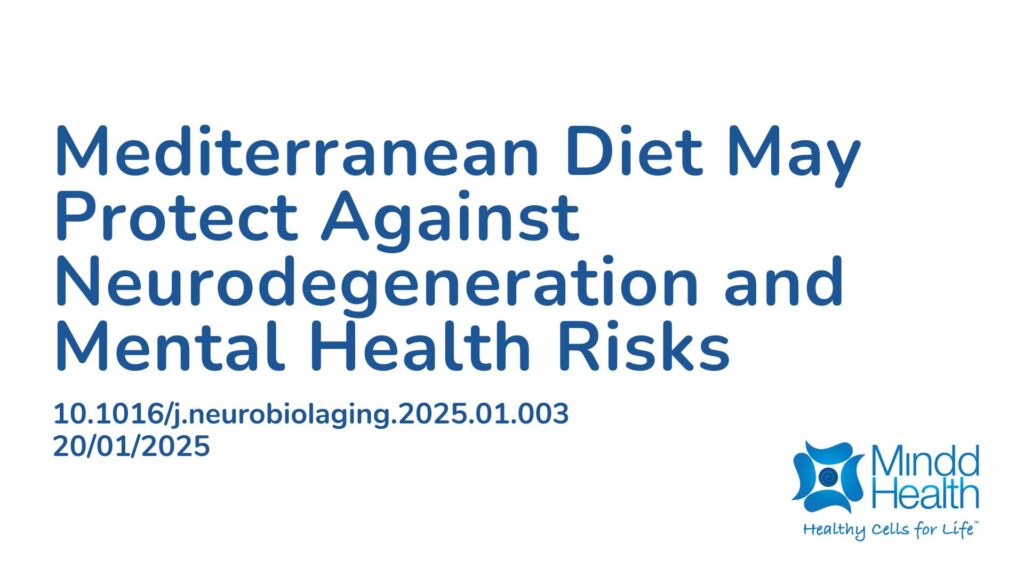Summary:
Recent research has linked diet, mental health, and Alzheimer’s disease (AD), with the Mediterranean diet (MeDi) showing potential benefits in reducing inflammation and oxidative stress. This is especially important as AD cases are expected to double every 20 years. Research also indicates that depression and anxiety not only increase AD risk but may also signal early neurodegeneration, suggesting that managing these conditions could help delay dementia. Since diet influences depression, anxiety, and dementia risk, this study examined its role in moderating these factors in 89 cognitively unimpaired older adults. In men with lower MeDi adherence, depressive symptoms correlated with higher AD biomarkers. Among those without the APOE ε4 gene (which increases AD risk), depression was linked to higher levels of AD biomarkers and Aβ40 (a protein associated with Alzheimer’s) when adherence to MeDi was low. These findings suggest that the Mediterranean diet may help mitigate neurodegeneration.
Abstract:
Associations between mental health, diet, and risk of Alzheimer’s disease highlight the need to investigate whether dietary patterns moderate the relationship between symptoms of depression and anxiety, and neurodegeneration-related blood-based biomarkers. Cognitively unimpaired participants (n = 89) were included from the Australian Imaging, Biomarkers and Lifestyle study (mean age 75.37; 44 % male). Participants provided dietary, depressive and anxiety symptom data, and had measurement of blood-based biomarkers. Dietary pattern scores (Mediterranean diet (MeDi), Dietary Approaches to Stop Hypertension diet (DASH), and Western diet) were generated. Moderation and simple slope analyses were employed. In males with mean and below mean MeDi adherence, depressive symptoms were associated with higher neurofilament light (NfL) levels. In Apolipoprotein E ε4 non-carriers with lower than mean and mean MeDi adherence, depressive symptoms were associated with higher NfL and Aβ40 levels. No associations were observed between DASH and Western diets and neurodegeneration-related biomarkers. MeDi adherence is potentially a moderator of the relationship between depressive symptoms and neurodegeneration-related blood-based biomarkers, with sex- and genotype-specific approaches important to consider within this relationship.
Article Publication Date: 20/01/2025
DOI: 10.1016/j.neurobiolaging.2025.01.003



